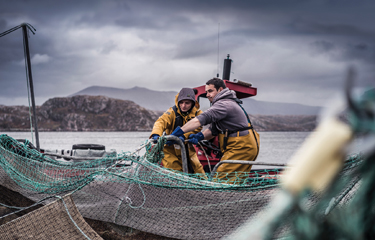Loch Duart has rolled out its forensic traceability tool to the United States and Canada, enabling consumers in those markets to verify that the fish they are being served was produced by the Scottish salmon farmer.
Concerned by food fraud, which is estimated to cost the global food industry up to USD 50 billion (EUR 45.1 billion) each year, Loch Duart has been working with the food traceability service Oritain for two years so that buyers in the United Kingdom can trace fresh salmon samples back to the individual farm and waters where the fish were raised.
Oritain protects the reputations of its customers by forensically tracing the products. It measures the natural concentrations of trace elements and isotopes that are unique to the environment in which the product is produced.
Loch Duart salmon are raised in low-density, low-energy, sheltered sites with minimal fish handling, and are fed with a bespoke, high-marine content fish feed.
“Oritain can forensically identify the exact location of any fresh salmon sample they test, and this has proven to be a highly effective deterrent for food fraudsters in the U.K. since we started working with Oritain in 2017. That’s why we’re now extending the availability of this analysis into North America,” Loch Duart Sales Director Andy Bing said. “It’s another way we can reassure our customers in the U.S. and Canada, that we are actively protecting the Loch Duart brand. Now, when diners choose our delicious tasting Loch Duart salmon, we can prove its unique origins.”
Based in northwest Scotland, Loch Duart produces more than 5,000 metric tons (MT) of salmon per year. Its products are supplied to hotels, restaurants, and retailers.
Photo courtesy of Loch Duart







